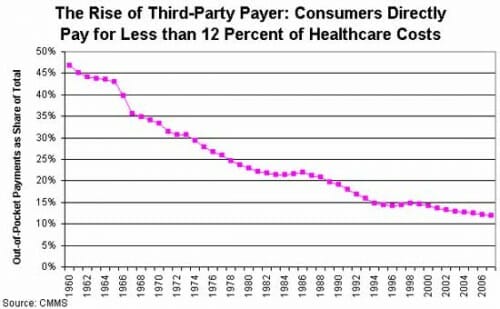Paris Climate Accords and Article II, Section 2 of the Consititution
As expected, Trump gave notice yesterday to the UN that the US is pulling out of the Paris climate accords. This marks the second time he has done so, making participation in these accords one of the EO ping pong balls that get swatted back and forth every inauguration day.
The reason this is possible is that supporters of these accords have never submitted the agreement to the Senate for ratification, which would make the terms of the agreement more legally binding and much harder to casually reverse. Per Article II, Section 2 of the Constitution:
[the President] shall have Power, by and with the Advice and Consent of the Senate, to make Treaties, provided two thirds of the Senators present concur;
Woodrow Wilson spent a huge amount of time, most of his remaining prestige, and probably his remaining health negotiating the Versailles Treaty, but it was all for nothing in this country because the Senate did not approve the treat, which is why we were never in the League of Nations.**
My understanding is that something like the Paris Climate Accords there is actually a potentially less daunting way to adopt the accords as US law without getting a 2/3 vote in the Senate -- legislation could be crafted with rules mirroring the commitments in the Accords and then passed normally through the House and Senate.
Neither of these courses were pursued by President Obama or President Biden, even when they possessed Congressional majorities. This is likely because -- whatever their public position is on climate change -- legislators know that adopting economically expensive mandates in an international agreement that are not matched by countries like China and India (see below) is wildly unpopular. And so the basic approach has been to negotiate and "commit" the US to these agreements by unilateral executive action, and then attempt to use the regulatory tools available to the Administration to attempt to comply. [A more cynical view is that US Presidents have done what every other world leader has done in signing these pacts-- sign them as a virtue-signaling position with no idea of how to meet the commitments and perhaps no real intention of doing so].
Update: This is really a stunning chart. We have returned to the same carbon intensity we had before the Civil War.
** It is also why US wine producers, at least until a new treaty with the EU was approved in 2006, could legally use the word "champagne" to describe certain types of sparkling wine. The history on this is complicated, and goes back further, but essentially the international agreement to not allow any wine outside of the Champagne region of France to use that name was embodied into the Treaty of Versailles, which the US did not ratify. There is an organization called the CIVC which is essentially the Champagne union that defends the champagne IP, sometimes to ridiculous ends (reminiscent of the NFL and the word "Superbowl.") I remember they sued Apple over calling a gold/bronze iphone color "champagne".


